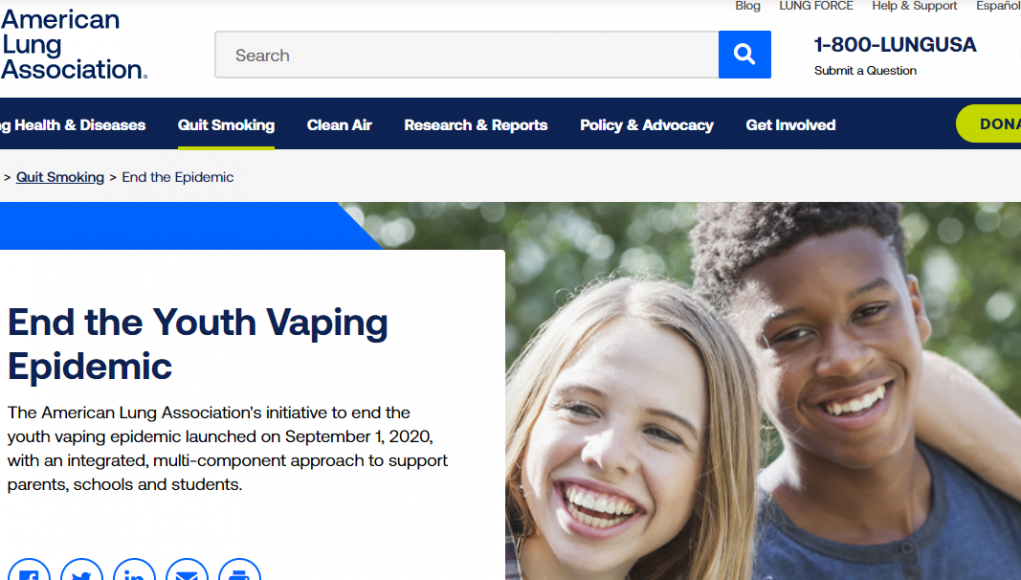Similarly, recently writing about this misinformation in the journal Addiction, the head of the FDA’s Center for Tobacco Products (CTP) Brian King, stated that correcting the inaccuracies about vaping are part of the Center’s 5-year strategic plan. “Opportunities exist to educate adults who smoke cigarettes about the relative risks of tobacco products,” said King.
Ironically, the ALA, an entity which is meant to be committed to rid the world of lung disease, is against this movement. The group is demanding that the FDA “remove language from the description for this goal that references informing adults about the relative risk of tobacco products” and that “CTP should have no part in the industry’s efforts to sustain addiction through the failed and flawed notion that adult smokers should switch to e-cigarettes.”
Such statements are shocking to say the least. The science on the relative risks of the products is indisputable. Countless studies have indicated the benefit, especially for sufferers of lung conditions such as COPD, in switching to non combustible tobacco products.
“This is highly ironic, given the extent to which the Lung Association and other tobacco control organizations went to punish the tobacco industry for lying to the public and hiding critical health information,” wrote Siegel. “It is also unethical because it violates the public health code of ethics, which calls for honesty and transparency in public health communications. We do not hide critical health information from the public.”
Misinformation is on the rise
Sadly, a study published in BMC Public Health examining data from the US PATH Surveys from 2014-2019, found that ‘risk misperceptions’ about vaping are still on the rise. Despite all the scientific evidence indicating the relative safety of the products, in 2019, 83% of US smokers incorrectly believed that vaping was as harmful, if not more harmful, than smoking.
Unsurprisingly the smokers who has these inaccurate beliefs about vapes were less likely to try and/or switch to the products and to keep on smoking. While smokers who correctly knew that the products are safer, were 134% more likely to try vaping, 127% more likely to stop smoking, less likely to dual use vapes and cigarettes and less likely to relapse to smoking.
More of the same in Australia
Discussing this study, Australian tobacco harm reduction expert Dr. Colin Mendelsohn said that there are number of factors which cause and feed this misinformation. Among these are a lack of education about nicotine, and uncertainties about the long-term health effects of vaping. This misinformation, he added, is fed by alarmist and misleading media coverage, which focuses on the harms of vapes instead of the relative safety of the products when compared to cigarettes.
Mendelsohn went on to name and shame Australian authorities, health charities and medical associations which are perpetuating such misinformation locally, hence causing more smoke-related deaths.
“Organisations such as the National Health and Medical Research Council, National Centre for Epidemiology and Public Health, Australian Medical Association, Cancer Council and Heart Foundation, Lung Foundation Australia, Australian Council on Smoking and Health, the Alcohol and Drug Foundation and the federal and state health departments are all responsible for misleading the public.”
The THR expert said that the study rightly concluded that “correcting smokers’ relative risk perception on ENDS, would have a significant impact on reducing harm” and save lives. Australian authorities, amongst others, should take note of this.
FMRI Differentiates Between The Effects of Smoking and Vaping on Lung Function




![Recent Conference Urged Nations Worldwide to “Quit [Smoking] Like Sweden”](https://www.vapingpost.com/wp-content/uploads/2024/04/vape-conference-238x178.png)







